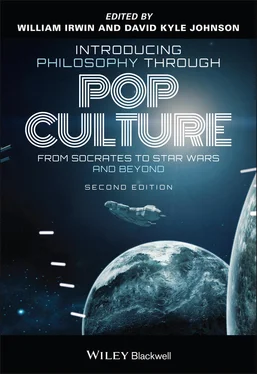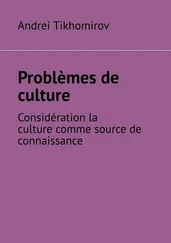Those things are secret for a very important reason: they're super‐depressing. And if that's your goal, well, misery accomplished. Over the last five years you people were so good – over tax cuts, WMD intelligence, the effect of global warming. We Americans didn't want to know and you had the courtesy not to try to find out. Those were good times – as far as we knew. 42
If we each had the duty to let everyone believe what they wanted and what was comforting, then educators – and particularly philosophers – would have the most immoral jobs on the planet. As Report‐Colbert pointed out in his book, nothing endangers cherished beliefs like education and philosophy, and nothing hurts more than learning new ideas.
Let me ask you this: Why were you happier when you were a kid? Because you didn't know anything. The more you know, the sadder you get. Don’t believe me?By the time you finish reading this chapter, over a hundred dogs and cats in animal shelters around the nation will be euthanized. Bet you wish you could erase that knowledge. But it's too late. You learned a New Idea, and it made you sad … Look at the story of Adam and Eve. Their lives were pretty great – until they ate from the Tree of Knowledge … God's point: Ignorance isn't just bliss, it's paradise. 43
We clearly do not have a right to opinions we cannot defend, especially if they are so clearly contrary to fact. Thus, the real Colbert cannot really think he has a right to believe, contrary to fact, that George Washington did not have slaves – or, for that matter, that the Panama Canal was finished in 1941 (instead of 1914). 44
If a tree falls in the forest and no one hears it, I hope it lands on a philosophy professor.
– Stephen Colbert
I Am America (And So Can You!) 45
We've considered many examples of Report‐Colbert saying things so profoundly stupid that we have to conclude that he was only kidding. But wait, is not he mocking conservative pundits, like Rush Limbaugh and Bill O’Reilly, by imitating them? We know Rush and Bill were not offering up satire (sadly, both were deadly serious about the moronic things they said). Neither was Sarah Palin when she said she had foreign policy experience because of Russia's proximity to her home state of Alaska, or Donald Trump when he said that climate change was a Chinese hoax, or used the phrase “for the 1/100th time” (when he meant for the hundredth time ) when talking about Coronavirus testing. How do we know that Colbert is not doing the same thing?
Part of it is context – he was on Comedy Central after all. But another big reason is that Report‐Colbert always took it just a bit further than Bill and those like him. Although Bill could benefit from taking one of my critical thinking classes, he would not endorse things as noticeably false as relativism and that the Earth never ages. And while we cannot be sure that Colbert wasn't lying when he “broke character” and said that was just playing a character, he really did seem to give away the game when he spoke out in an interview against the things I have condemned in this chapter: relativism, truthiness, right to opinion, and gut thinking.
Truthiness is tearing apart our country … it does not seem to matter what facts are. It used to be, everyone was entitled to their own opinion, but not their own facts. But that's not the case anymore. Facts matter not at all. Perception is everything. It's certainty. People love … president [Bush] because he's certain of his choices as a leader, even if the facts that back him up do not seem to exist. It's the fact that he's certain that is very appealing to a certain section of the country. I really feel a dichotomy in the American populace. What is important? What you want to be true, or what is true? 46
So, it seems, the real Stephen Colbert agrees. We do not want to be relativists, thinking that groups or individuals can determine what is true. We also do not want to be gut thinkers, believing our intuition can be enough justification for controversial beliefs. We should defend our positions against argument, and when we cannot defend them we should give them up. We want to have a concern for truth and try our best to find out what it true. And, when we realize that we do not have enough evidence to draw an informed conclusion about something, we should be agnostic – we should admit, like Socrates, that we simply do not know the answer – instead of hiding behind a call for “a right to our opinion.”
All of these mistakes are tempting when doing philosophy because philosophical questions are so hard to answer. It's easy to give up, think there is no answer, and just appeal to the majority, your gut, or your right to believe whatever you want. But the fact that an answer is hard to find does not entail that the answer is not there. Philosophy does make progress – it just takes a while. By engaging in the philosophical endeavor, you are taking part in a very large and long process that answers the most important questions a person can ask. They will not all be answered in your lifetime, but you should be able to discover answers that you can at least defend with rational argument.
For pop culture resources and philosophical resources related to this chapter please visit the website for this book: https://introducingphilosophythroughpopculture.com.
1 1The Colbert Report, October 18, 2007.
2 2The Rush Limbaugh Show, www.rushlimbaugh.com.
3 3LaMarre, H.L., Landreville, K.D., and Beam, M.A. (2009). The irony of satire: political ideology and the motivation to see what you want to see in The Colbert Report . The International Journal of Press/Politics 14: 212.
4 4Wilstein, M. (2019). Stephen Colbert: I Could Never Play Right‐Wing “Colbert Report” Character Under Trump. Daily Beast. https://www.thedailybeast.com/stephen‐colbert‐i‐could‐never‐play‐colbert‐report‐character‐under‐trump (November 8, 2019).
5 5See Kurtz, H. . (2005). Tv's Newest Anchor: A Smirk in Progress. Washington Post. http://www.washingtonpost.com/wp‐dyn/content/article/2005/10/09/AR2005100901551.html (October 10, 2005). See also Bierly, M. . (2006). Show Off. Entertainment Weekly. http://www.ew.com/ew/article/0,,677356,00.html. (July 22, 2006).
6 6“The Daily Show … unwittingly paid ‘Jordan Klepper’ to be a mole against them. They had no idea I was playing them this whole time … I played them so hard. I learned their liberal ways, I donated to their liberal causes, I voted for their liberal candidates … ‘This [pointing to a picture of himself in the same clothes] is not a character. This is the real me.’” The Opposition, September 25, 2017.
7 7Bradley, L. (2017). Your First Look at Jordan Klepper's Alex Jones‐Inspired Late‐Night Show. Vanity Fair. https://www.vanityfair.com/hollywood/2017/08/jordan‐klepper‐comedy‐central‐show‐trailer‐the‐opposition (August 23, 2017).
8 8Bradley, “Your First Look at Jordan Klepper's Alex Jones‐Inspired Late‐Night Show.”
9 9Wilstein, M. (2019). Jordan Klepper Loved Watching Alex Jones Admit That He's ‘Playing a Character. Daily Beast. https://www.thedailybeast.com/jordan‐klepper‐loved‐watching‐alex‐jones‐admit‐that‐hes‐playing‐a‐character (May 29, 2019).
10 10Tarrant, D. (2018). Why Do People Listen to Infowars' Alex Jones At All? We Asked Them. The Dallas Morning News. https://www.dallasnews.com/news/texas/2018/08/10/why‐do‐people‐listen‐to‐infowars‐alex‐jones‐at‐all‐we‐asked‐them (August 10, 2018).
11 11The Opposition, September 25, 2017.
12 12Strong, S. and Schapiro, R. (2009). Missing Link Found? Scientists Unveil Fossil of 47‐Million‐Year‐Old Primate, Darwinius Masillae. New York Daily News. http://www.nydailynews.com/news/us_world/2009/05/19/2009‐05‐19_missing_link_found_fossil_of_47_millionyearold_primate_sheds_light_on_.html (May 19, 2009).
Читать дальше












